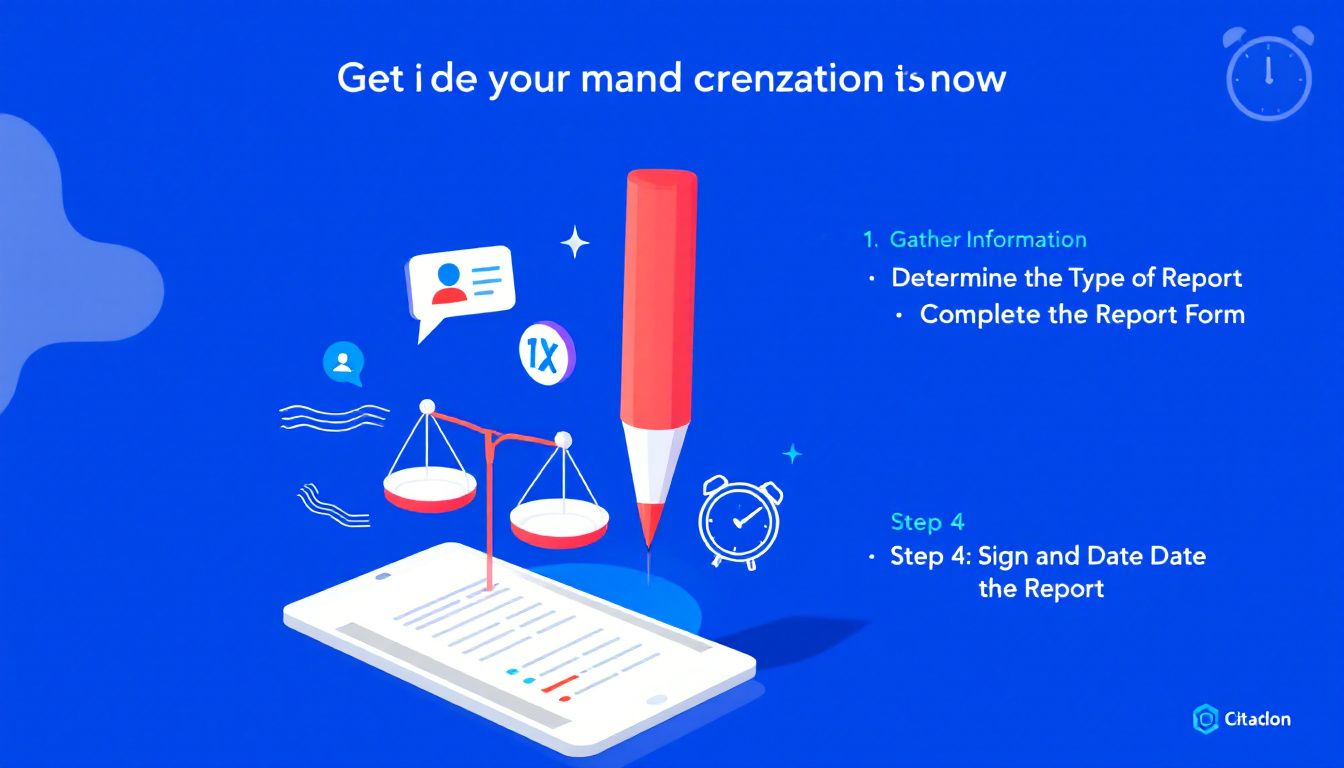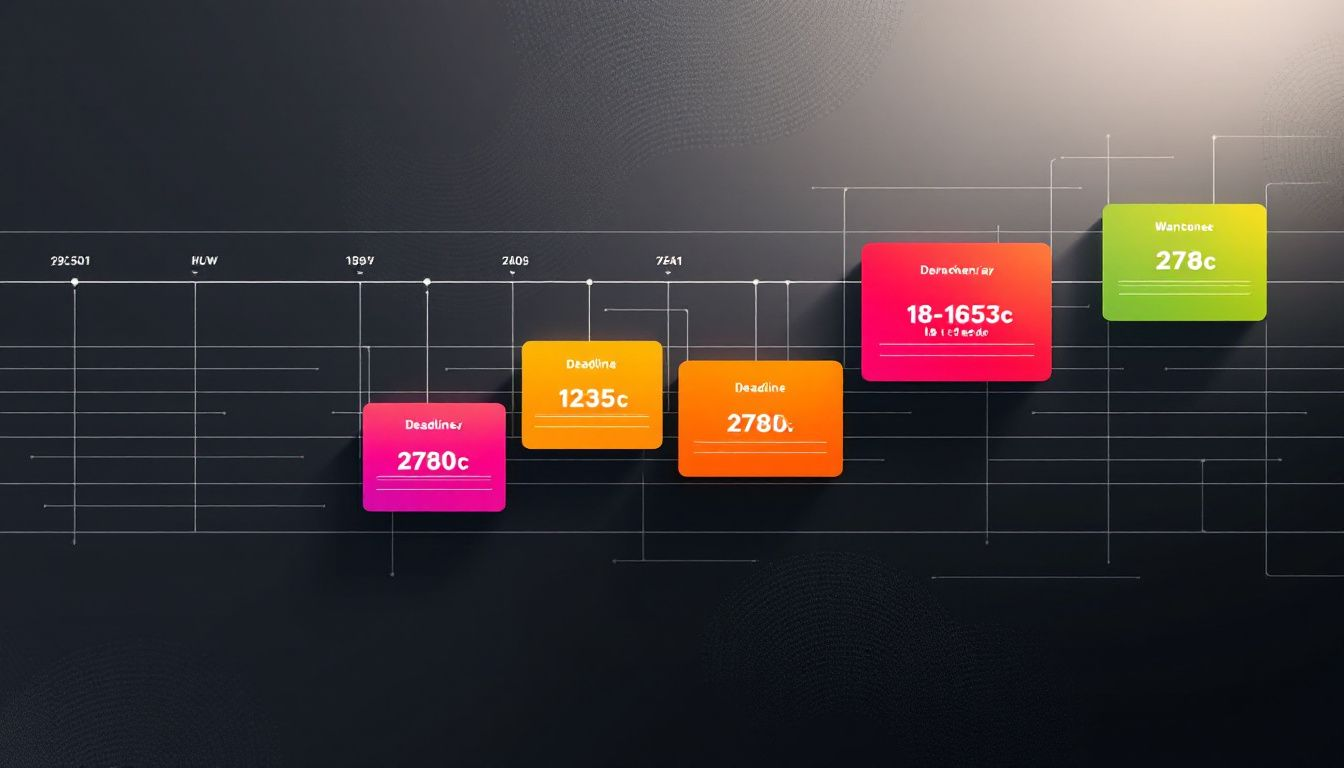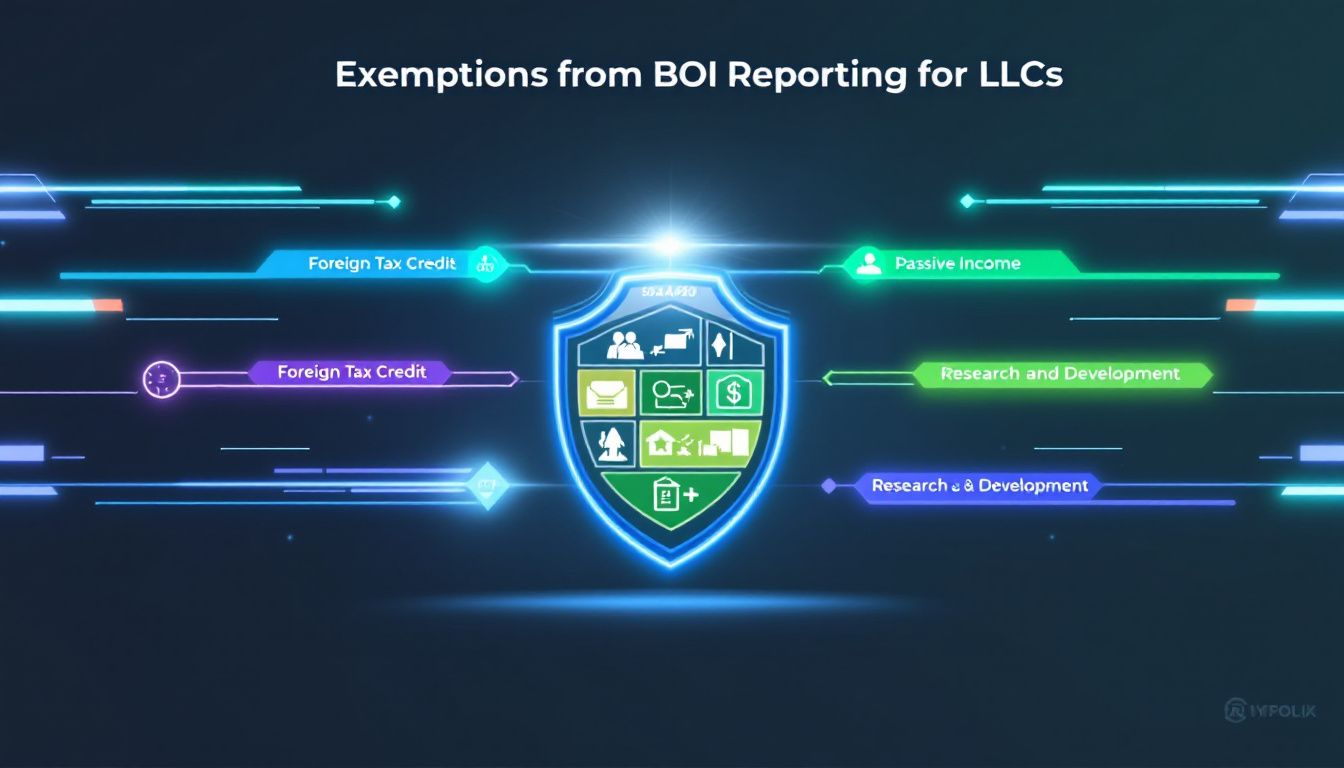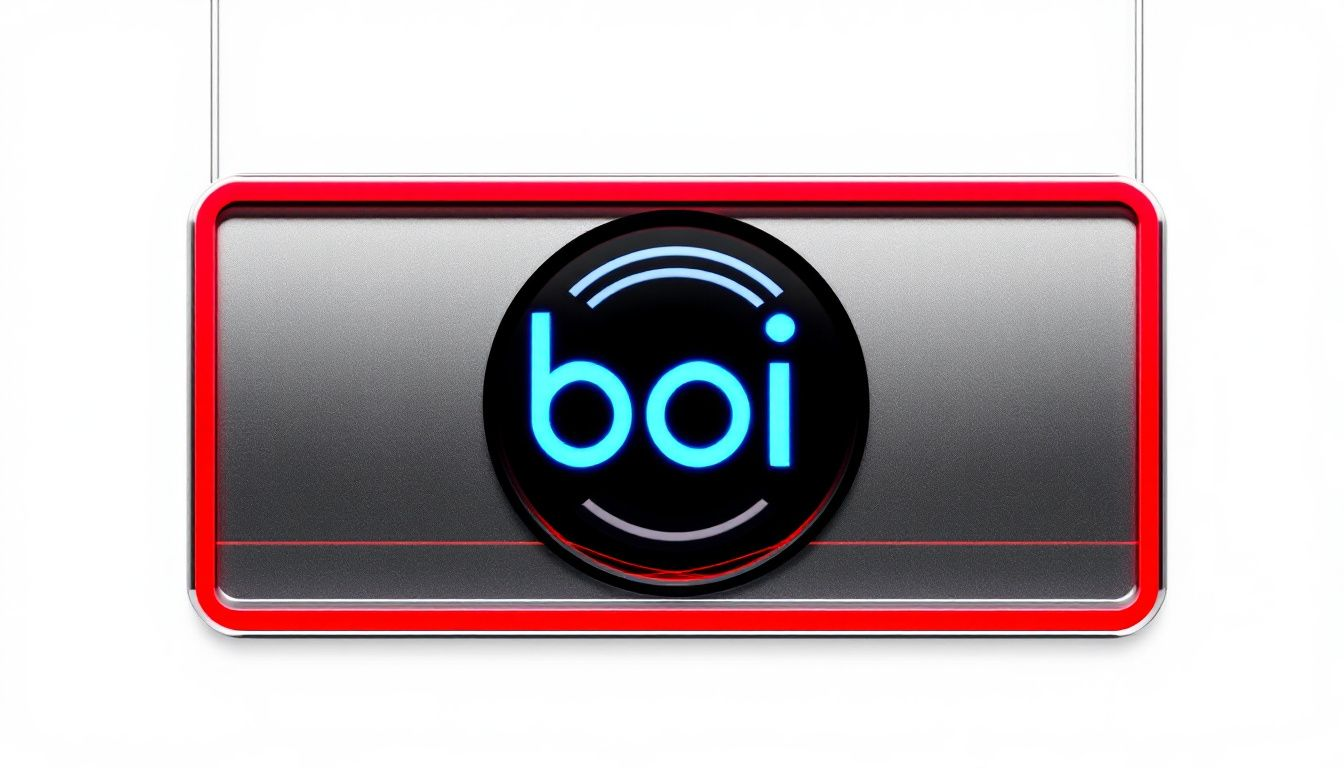BOI for LLC: Essential Reporting Requirements You Need to Know
If you run an LLC, you need to understand Beneficial Ownership Information (BOI) reporting. BOI for LLC means identifying and reporting individuals who control the company. This article explains why BOI for LLC is required under the Corporate Transparency Act (CTA), who must file, and the steps to stay compliant.
Key Takeaways
- Beneficial Ownership Information (BOI) reporting is mandated by the Corporate Transparency Act to promote transparency and reduce financial crimes, requiring LLCs to disclose individuals owning at least 25% of the company or exerting significant control.
- LLCs must file BOI reports unless they qualify for exemptions based on specific criteria, such as having over 20 employees and gross receipts exceeding $5 million; initial reports are due by January 1, 2025, for existing entities.
- Non-compliance with BOI reporting can lead to severe penalties, including fines of up to $10,000 and potential imprisonment for willful violations; timely and accurate reporting is essential for maintaining compliance.
Understanding Beneficial Ownership Information (BOI) for LLCs

Beneficial Ownership Information (BOI) is a cornerstone of transparency in the corporate world. It consists of identifying information about individuals who own or control a company. A BOI report lists individuals who own and control businesses operating in the U.S. This company’s beneficial ownership information helps to increase transparency in company ownership and identify the individuals who hold significant control over a company.
The Corporate Transparency Act (CTA), passed in 2021, mandates BOI reporting to combat illicit activities such as money laundering and tax evasion. The CTA mandates companies to disclose their beneficial owners, fostering a more transparent business environment. But what exactly is a beneficial owner?
A beneficial owner is defined as an individual who holds at least a 25% ownership interest in a company. This individual may also indirectly exercises substantial control over the company. This includes individuals who have the authority to make significant decisions for the LLC, regardless of their equity ownership. If an individual can influence the company’s operations or is entitled to at least 25% of the profits, they qualify as a beneficial owner.
Identifying who qualifies as a beneficial owner and knowing what information must be reported is essential. This ensures compliance with the BOI reporting obligations and helps maintain the integrity of the financial system. To report beneficial ownership information and the beneficial ownership information report helps create a more transparent and secure business environment, deterring illegal activities and promoting fair business practices.
BOI reporting is not merely a regulatory requirement; it is a critical component of corporate governance. It enhances transparency, aids in the prevention of financial crimes, and ensures that companies operate within the legal framework. Now that we have a clear understanding of what BOI entails, let’s move on to who needs to file these reports for an LLC.
Who Needs to File BOI Reports for an LLC?
The Corporate Transparency Act mandates that businesses disclose their beneficial owners to enhance ownership transparency. But who exactly falls under this requirement? A company is required to report its beneficial owners if it meets certain criteria established by the Act.
Limited liability companies and corporations of all sizes are required to submit Beneficial Ownership Information reports under the CTA. These companies are designated as reporting companies. Both domestic and foreign reporting companies must adhere to these obligations. If your limited liability company was created or registered by filing a document with the appropriate state office, you are subject to these reporting requirements.
However, not all business entities are required to file BOI reports. There are certain reporting company exemptions, typically reserved for entities that are subject to extensive government regulation. For instance, larger operating companies with more than 20 employees, a physical office in the U.S., and gross receipts exceeding $5 million may qualify for an exemption. Additionally, companies that ceased to exist before the effective reporting date are not required to file.
Reporting companies must submit BOI reports regardless of establishment date unless they qualify for exemptions. This means that both newly formed and long-established LLCs need to be aware of their reporting obligations.
Understanding whether your LLC qualifies as a reporting company is the first step in ensuring compliance with BOI reporting requirements. Next, we will dive into the key steps involved in filing a BOI report for your LLC, ensuring that you have all the information you need to stay compliant.
Key Steps to Filing a BOI Report for Your LLC

Filing a BOI report for your LLC involves several crucial steps. These include identifying beneficial owners, gathering the required information, and submitting the report. Each step must be executed with precision to ensure compliance and avoid penalties.
Identifying Beneficial Owners
The first step in the BOI reporting process is identifying the beneficial owners of your LLC. Beneficial owners must be individuals; entities such as trusts or corporations cannot be classified as beneficial owners. These individuals are those who directly or indirectly own at least 25% of the LLC or have the authority to make significant decisions for the company.
Identifying all individuals who qualify as beneficial owners is crucial, as there is no maximum number of beneficial owners that can be reported for an LLC. This includes those who exercise substantial control over the company, even if they do not hold a significant equity stake. Accurately identifying all beneficial owners is key to complying with BOI reporting requirements.
Gathering Required Information
Once you have identified the beneficial owners, the next step is to gather the required information. This includes details like full legal names, addresses, dates of birth, and identification document numbers for each beneficial owner. Each beneficial owner must provide a unique identifying number from an acceptable ID document.
Accuracy is paramount when gathering this information. Ensure that all collected data is up-to-date and correct before submission. In cases where changes occur, such as a beneficial owner passing away or reaching the age of majority, updated reports must be filed. Accurate beneficial ownership data is also essential for financial institutions to conduct their due diligence.
Submitting the BOI Report
The final step is submitting the BOI report. This must be done electronically through FinCEN’s BOI E-Filing website. The individual submitting the report can be an employee, owner, or a third-party service provider. They must certify that the information given is accurate, truthful, and complete.
FinCEN has created a secure online platform for BOI reporting, and the necessary forms and instructions can be found on their website. Once submitted, companies must ensure that updates are filed electronically whenever there are changes to the beneficial ownership information.
Following these steps ensures your LLC remains compliant with BOI reporting obligations. Timely and accurate reporting not only fulfills legal requirements but also promotes transparency and trust in your business operations.
Important Deadlines for BOI Reporting

Meeting the deadlines for BOI reporting is crucial to avoid penalties and ensure compliance. The initial BOI report for companies formed before January 1, 2024, is due by January 1, 2025. This gives existing businesses ample time to prepare and submit their reports.
For entities created or registered in 2024, the deadline is within 90 days of receiving actual or public notice that their registration is effective. This means that new businesses must be prompt in gathering and submitting the required information. Companies established or registered after January 1, 2025, must report within 30 days of their creation notice.
Adhering to these deadlines is necessary to avoid significant penalties. Missing the filing deadlines can result in daily fines and other legal consequences. Ensuring that BOI reports are submitted on time is a critical component of maintaining compliance and avoiding potential issues.
Tracking these deadlines helps LLCs meet their reporting obligations and avoid costly repercussions.
Exemptions from BOI Reporting for LLCs

While most LLCs are required to file BOI reports, there are certain exemptions. These exemptions are typically reserved for entities that are subject to extensive government regulation. Understanding whether your LLC qualifies for an exemption can save time and resources.
An LLC can be exempt from BOI reporting if it has over 20 employees, maintains a physical office in the U.S., and has reported gross receipts exceeding $5 million. Additionally, companies that ceased to exist before the effective reporting date are not required to file.
Most LLCs do not fall under these categories and must report their beneficial owners. However, if your LLC meets the criteria for an exemption, ensure that you have the necessary documentation to support your claim.
Understanding the exemptions from BOI reporting helps LLCs determine their specific obligations and comply with the Corporate Transparency Act.
Consequences of Non-Compliance with BOI Reporting Requirements

Failing to comply with BOI reporting requirements can result in severe penalties. Willful non-compliance may lead to criminal penalties, including fines of up to $10,000 and possible imprisonment for up to two years. These consequences underscore the importance of adhering to BOI reporting obligations.
Civil penalties for willful violations can reach up to $500 per day, adjusted annually for inflation. Currently, these fines stand at $591 per day. This means that even a short delay in filing can result in significant financial repercussions.
The fines for non-compliance can quickly add up, making it crucial for LLCs to meet their BOI reporting deadlines and ensure that all information is accurate and complete. The broader implications of non-compliance include damage to the company’s reputation and potential disruptions to business operations.
Understanding the consequences of non-compliance helps LLCs prioritize BOI reporting and avoid severe penalties.
How to Keep Your BOI Report Up-to-Date
Maintaining an up-to-date BOI report is essential for ensuring ongoing compliance. A BOI report needs to be updated within 30 days of any changes to company or ownership information. This includes changes in beneficial owners’ details, such as their name, address, or identification documents.
If inaccuracies are found in an initial boi reports, a corrected BOI form must be submitted within 30 days. This ensures that the report information remains accurate and up-to-date, fulfilling the BOI reporting requirements. Regularly reviewing and updating the BOI report can help avoid potential issues and penalties.
Keeping your BOI report current ensures your LLC remains compliant with the Corporate Transparency Act and avoids costly consequences.
Summary
Understanding and complying with Beneficial Ownership Information (BOI) reporting requirements is essential for any LLC. The Corporate Transparency Act mandates that businesses disclose their beneficial owners to enhance transparency and combat illicit activities like money laundering and tax evasion. By filing accurate and timely BOI reports, LLCs contribute to a transparent and secure business environment.
Filing a BOI report involves identifying beneficial owners, gathering the necessary information, and submitting the report through FinCEN’s online platform. It’s important to be meticulous in these steps to ensure compliance and avoid penalties. Key deadlines must be adhered to, with initial reports due by January 1, 2025, for existing companies, and within 90 days or 30 days for new companies, depending on their formation date.
While some LLCs may qualify for exemptions, most are required to report their beneficial ownership information. Non-compliance can result in severe civil and criminal penalties, making it crucial to meet all reporting obligations. Keeping BOI reports up-to-date is also vital, requiring updates within 30 days of any changes.
In conclusion, staying informed and proactive about BOI reporting can safeguard your LLC from legal repercussions and enhance its reputation. Ensuring transparency and compliance not only fulfills legal requirements but also builds trust with stakeholders and contributes to a fair business landscape.
Frequently Asked Questions
Who qualifies as a beneficial owner for an LLC?
A beneficial owner for an LLC is defined as an individual who directly or indirectly owns 25% or more of the entity or has substantial control over its operations.
Are there any exemptions from BOI reporting for LLCs?
Yes, LLCs with over 20 employees, a physical office in the U.S., and gross receipts exceeding $5 million may qualify for exemptions from BOI reporting.
What are the consequences of failing to file a BOI report?
Failing to file a BOI report can lead to significant civil penalties of up to $500 per day, alongside possible criminal penalties that include fines reaching $10,000 and imprisonment for up to two years. It is crucial to comply with reporting requirements to avoid such severe consequences.
How often do I need to update my BOI report?
You must update your BOI report within 30 days of any changes in company or ownership information. This ensures compliance and accuracy in your reporting.
Where can I submit my BOI report?
You should submit your BOI report electronically via FinCEN’s BOI E-Filing website. This method ensures proper processing of your report.








 CHAT WITH US
CHAT WITH US